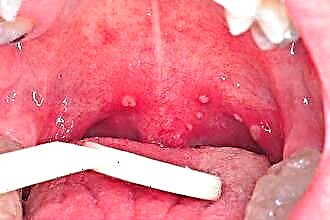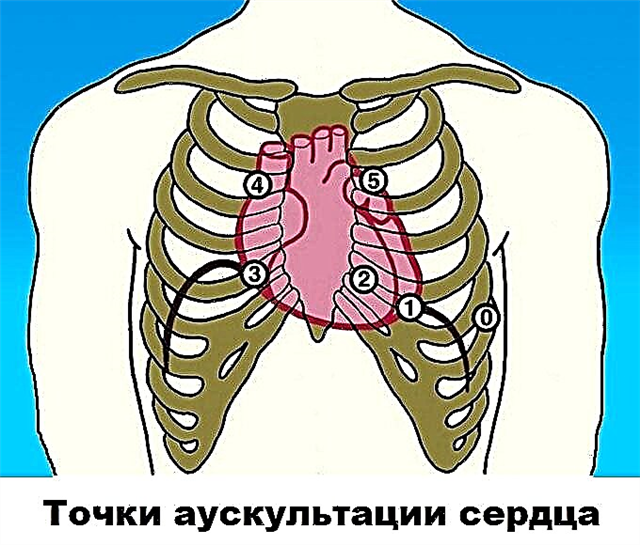 What should be the prevention of rhinitis? Preventive measures should be aimed at strengthening the immune system and increasing the body's resistance to infectious agents. An important role in the prevention of a runny nose is played by a balanced diet, hardening the body, as well as maintaining oral and nasal hygiene.
What should be the prevention of rhinitis? Preventive measures should be aimed at strengthening the immune system and increasing the body's resistance to infectious agents. An important role in the prevention of a runny nose is played by a balanced diet, hardening the body, as well as maintaining oral and nasal hygiene.
During the period of exacerbation of seasonal diseases, doctors recommend using vitamin and mineral complexes, tableted immunostimulants and adaptogens.
Prevention measures
How to prevent the development of a cold? First of all, you need to understand that rhinitis is a consequence of a respiratory illness. To reduce the likelihood of profuse nasal discharge, it is necessary to prevent inflammation of the nasopharynx. There are several basic measures for the prevention of colds, which may be associated with:
- nutrition;
- medicines;
- hygiene.
Rhinitis can be prevented only if all necessary precautions are constantly observed throughout the entire period of exacerbation of seasonal diseases.
To avoid the appearance of rhinorrhea, you need to monitor the state of your own immunity. In fact, the overwhelming majority of respiratory diseases develop precisely against the background of a decrease in the body's resistance to infectious agents. But hypothermia, anemia, hypovitaminosis, exacerbation of chronic pathologies, etc., can provoke their development.
Prevention of acute rhinitis
How to avoid the appearance of acute rhinitis? As a rule, an infectious rhinitis occurs against the background of hypothermia and contact with infected people. In addition, many people unconsciously create favorable conditions for the development of pathogenic microorganisms at home.
To prevent inflammation of the nasal cavity and, as a result, rhinorrhea, it is desirable:
- avoid hypothermia, as they reduce the body's resistance to infections;
- during periods of outbreaks of seasonal diseases, to minimize contact with people around;
- use vitamin and mineral complexes and foods rich in useful microelements;
- humidify the air in the room during the heating season;
- rinse the nose with saline solutions when the first signs of congestion appear.
Colds are one of the key provoking factors that cause rhinorrhea. It is caused by pathogenic viruses that begin to multiply actively when favorable conditions arise. If for some reason you could not avoid hypothermia, immediately upon returning home, steam your feet in hot water. Even a slight increase in body temperature stimulates the synthesis of interferon in organism, which just prevents the penetration of viruses into the mucous membranes of the ENT organs.
Air humidification
Maintaining a normal relative humidity in the room is the best prevention of infectious and allergic rhinitis. As you know, during the heating season, the humidity in the room drops to critical levels, as a result of which the mucous membranes of the nose, throat and eyes dry out. In this regard, local immunity is significantly reduced, which creates favorable conditions for the development of pathogenic microorganisms.
According to the recommendations of experts, the relative humidity in the room should be at least 60%. While maintaining the necessary microclimate in the room, the mucociliary clearance is normalized, which prevents the penetration of viruses and bacteria into the nasal mucosa. How can the air in the room be humidified?
It is recommended to use special ultrasonic humidifiers to maintain an optimal level of humidity in the room. If they are absent, you can place containers with boiled, or better, mineral water in the room. You can also hang damp towels or pillowcases in the room.
Important! When humidifying the air, it is undesirable to use "raw" tap water, as it contains chlorine, which causes the mucous membranes of the throat and nose to dry out.
Hardening
 Hardening the body is the best prevention of rhinitis and colds. To increase non-specific immunity, it is recommended to pour cold water on the soles of the feet every day, the temperature of which is at least 26 ° C. The water temperature can be gradually reduced in steps of 1-2 ° C. What are the benefits of hardening?
Hardening the body is the best prevention of rhinitis and colds. To increase non-specific immunity, it is recommended to pour cold water on the soles of the feet every day, the temperature of which is at least 26 ° C. The water temperature can be gradually reduced in steps of 1-2 ° C. What are the benefits of hardening?
It is known that there are reflexogenic areas on the feet that are associated with the respiratory organs, in particular the nasopharynx. That is why with hypothermia, most people almost immediately begin to sneeze and "snot". To increase the body's resistance to low temperatures, you need to temper.
According to doctors, dousing is best done in the morning after morning exercises.
Important! Hardening can be carried out only in the absence of the slightest manifestations of a cold.
As practice shows, people who regularly douse their feet with cold water and take a contrast shower are sick with ARVI 3 times less often. If you don't want to get the flu all fall or winter, start hardening up in summer. Swimming in open bodies of water and regular walks in the fresh air also stimulate an increase in the body's resistance.
Nasal Irrigation Therapy
Irrigation therapy means irrigation of the nasal mucosa with drugs. In the absence of inflammation in the respiratory organs, ordinary saline solutions or isotonic drugs, which are sold in any pharmacy, can be used as drugs. The safest and most effective medicines include:
- Salin;
- Morenazal;
- "Marimer";
- "Aqualor".
Washing helps to cleanse the turbinates and sinuses of most potentially dangerous agents - viruses, fungal spores, allergens, etc. For this reason, irrigation therapy is suitable for the prevention of rhinitis of almost any etiology. Sanitizing procedures are recommended at least once a day during periods of flu and cold outbreaks.
According to practical observations, constant nasal irrigation helps to reduce the likelihood of nasopharyngeal inflammation by 2-3 times.
Saline solutions cleanse the nasal passages of mucus, dust, and infectious agents. Moreover, isotonic drugs significantly increase the tissue reactivity of the mucous membranes. Therefore, even with a short contact with a carrier of infection, the risk of penetration of pathogens into tissues is significantly reduced.
Nebulizer inhalation
Aerosol inhalations allow not only to prevent a runny nose, but also to buy an already incipient rhinorrhea. For the procedure, it is advisable to use saline or immunostimulating drugs. Ordinary mineral water will be just as effective as it will help restore the normal pH level in the nasal mucosa. Alkalinization of the nasopharynx contributes to the creation of unfavorable conditions for the development of pathogenic microbes and fungi in the respiratory tract, thereby reducing the likelihood of rhinitis.
The most effective drugs that prevent the development of colds include:
- Borjomi;
- Interferon;
- Rotokan;
- Miramistin.
Before pouring drugs into the nebulizer chamber, they should be diluted with saline at the dosage indicated in the instructions for the medicine.
Antiseptic and immunostimulating solutions have a beneficial effect on the work of mucociliary clearance. In addition, systematic inhalation prevents irritation and drying out of the mucous membrane, which only increases the chances of developing an infection in the respiratory tract.
Multivitamins
Multivitamins are food supplements that contain essential amino acids, trace elements and vitamins. Periodic intake of vitamin and mineral complexes allows you to replenish the lack of nutrients in the body. As you know, hypovitaminosis is one of the key reasons for a decrease in immunity and, as a result, the development of colds.
 To prevent runny nose in adults, it is recommended to use dietary supplements in the autumn-spring periods, which include iron, zinc, calcium, ascorbic acid (vitamin C), tocopherol (vitamin E), folic acid (vitamin B9), cyanocobolamin (vitamin B 12) and retinol (vitamin A). These biologically active substances affect the rate of metabolic processes in tissues and nonspecific immunity.
To prevent runny nose in adults, it is recommended to use dietary supplements in the autumn-spring periods, which include iron, zinc, calcium, ascorbic acid (vitamin C), tocopherol (vitamin E), folic acid (vitamin B9), cyanocobolamin (vitamin B 12) and retinol (vitamin A). These biologically active substances affect the rate of metabolic processes in tissues and nonspecific immunity.
To prevent the development of colds, in anticipation of seasonal respiratory diseases, it is recommended to use:
- Complivit;
- "Alphabet";
- Alfadol;
- "Vigantol";
- Iron Plus.
Before using vitamins, you need to consult a doctor, since an overdose of drugs is fraught with the development of hypervitaminosis. In addition to drugs, it is recommended to make some adjustments to the diet. People who often suffer from respiratory problems need to include fresh vegetables and fruits on their menu, which are rich in essential amino acids, antioxidants and vitamins.
Adaptogens
In winter, when the body is weakened by hypovitaminosis, stress and hypothermia, you need to take herbal adaptogens. The drugs in this group have an immunostimulating, tonic and tonic effect. To prevent serious stress on the liver, it is advisable to make your choice in favor of herbal medicines.
Herbal remedies contain useful substances that affect the rate of biochemical reactions in the body and, accordingly, tissue reactivity. Some of the best and safest adaptogens include:
- Rhodiola rosea;
- "Chinese lemongrass";
- Eleutherococcus;
- Echinacea;
- Leuzea.
It is undesirable to take herbal adaptogens with increased nervous excitability and epilepsy.
Before using herbal remedies, you need to familiarize yourself with some of the features of their use. Otherwise, the effectiveness of immunotherapy will be zero and, accordingly, the risk of rhinitis will definitely not decrease. First, for the drug to work, it must be taken in courses of 10-14 days. Secondly, you need to use adaptogens at least 30 minutes before meals and only in the first half of the day. And thirdly, despite the similarity of the principle of action, some drugs are aimed at increasing immunity, while others are aimed at restoring metabolic processes. Therefore, before using them, you should still consult with a specialist.
Allergic rhinitis and barrier drugs
We should also mention the prevention of allergic rhinitis. Unfortunately, it is not always possible to prevent contact with allergens. This is especially true for patients with hay fever. Wearing gauze dressings during the flowering period of wind-pollinated plants does not always give the desired results. How, then, can a runny nose be prevented?
Fortunately, modern pharmaceuticals offer many barrier nasal agents that help prevent the penetration of allergens into the nasal mucosa. They are available in the form of drops and sprays, which form a protective film, impervious to irritating agents, on the inner surface of the nasal passages.
To avoid the development of an allergic rhinitis, you can use pharmaceutical drugs such as Nazaval and Prevalin. They contain components that capture and destroy allergens that have entered the nasopharynx. Their regular use helps people with allergies to prevent the onset of rhinitis and associated pathological symptoms.



